This post has not been edited by the GamesBeat staff. Opinions by GamesBeat community writers do not necessarily reflect those of the staff.
They say the "Ballad of the Wind Fish" is a song of awakening. I wonder…if the Wind Fish wakes up, will he make my wish come true? — Marin, The Legend of Zelda: Link's Awakening
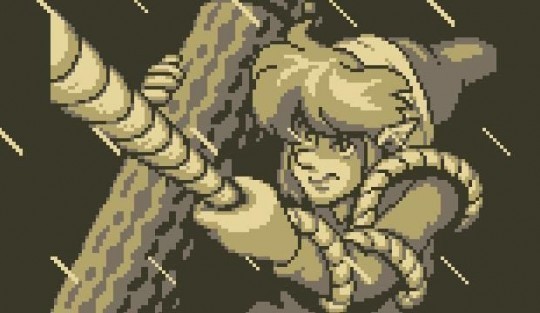
I first questioned the nature of reality when I was 11-years old, and it was because of a video game.
The early games in the Legend of Zelda series weren't long on story. You had your unlikely hero, your damsel in distress, your evil monsters, your power-hungry villain, and that was about it. Even A Link to the Past, the SNES epic, didn't deviate too much from the formula.
Link's Awakening, the first portable entry in the Zelda series, did. Rather than in the familiar realm of Hyrule, the game took place on the island of Koholint. (Or did it?) The damsel in distress wasn't Zelda. (Or was she?) And the Big Bad wasn't Ganon. (Although he did show up….)
Link's Game Boy adventure did things that I had never encountered in a game before — it overtly allowed its characters to wonder about the nature of the world they were in.
And it blew my little 11-year-old mind.
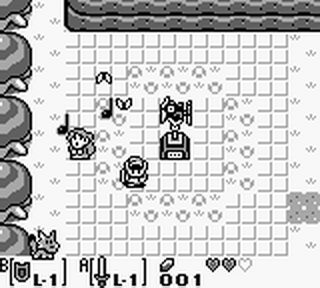
Hey, man! When you want to save just push all the buttons at once! Uhh…don't ask me what that means, I'm just a kid! — Mabe Village child
It's pretty common these days for games to break the fourth wall with in-character references to game mechanics or control advice. (The Metal Gear Solid series leaps to mind as a good example.) Games before Link's Awakening did it, too — PC adventure titles frequently reacted to player commands with jokes and asides about save files, prices, and advertising.
Link's Awakening went a step further, though. Because the game revolves around discovering the nature of Koholint Island and the Wind Fish, the fourth wall comments become more meaningful. When a kid in the village tells you how to save your game and then claims he doesn't know what that means, it's cute. When he later wonders if he's going to disappear when the Wind Fish's dream ends…that makes those meta-jokes a little weirder.
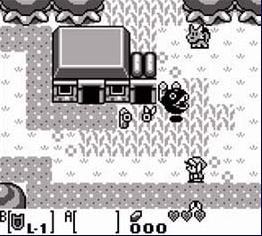
Where are you from, brother? Outside the island? What is "outside?" I've never thought about it…. — Mabe Village child
The game makes it fairly obvious from the start that Koholint doesn't actually exist. But it also doesn't specify what it truly is. Your owl guide explains that the island is all part of the dream of the Wind Fish, a creature you don't see until the game's end. But if you're somehow stuck in a reality created by a magical whale-bird-thing, then why do you meet Marin, who, the game explains, looks eerily similar to Princess Zelda? Why does Ganon appear as one of the Nightmares at the end of the game? Who exactly is dreaming whom?
As you continue your adventure, it becomes clear that, no matter who's responsible for this dream world, it will end when Link wakes up the Wind Fish (and himself). Which means that every inhabitant you meet on your quest will effectively cease to exist the moment you achieve your goal. Talk about bleak.
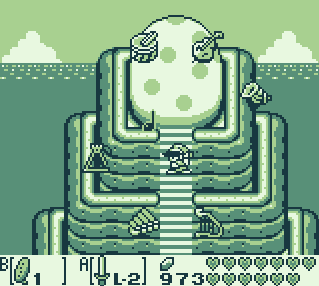
AWAKE THE DREAMER, AND KOHOLINT WILL VANISH MUCH LIKE A BUBBLE ON A NEEDLE…. CASTAWAY, YOU SHOULD KNOW THE TRUTH! — Mural
When Link finally does awaken, he is adrift on the wreckage of his ship in the middle of an empty ocean. He looks up and sees the flying form of the Wind Fish crossing the sky — one of those classic "So the dream was real!" moments that asks more questions than it answers.
The designers of Link's Awakening created this sense of mystery and ambiguity on purpose. In an interview last year, Nintendo's Takashi Tezuka said he intended for the game to have a Twin Peaks-esque feeling, to make characters "suspicious" and heighten the drama (minus the murder, obviously).
Those design decisions set the stage for similar narrative techniques in later Zelda games — current series director Eiji Aonuma said in that same interview that, if not for Link's Awakening, the tone of the whole Zelda series would have been different. Some characters in more recent entries like Majora's Mask and Twilight Princess certainly maintain that sense of strangeness and mystery.
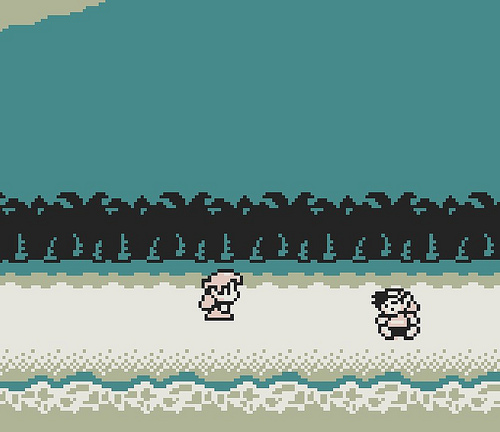
Link, some day you will leave this island…. I just know it in my heart…. Don't ever forget me…. — Marin
Obviously, I didn't know all of this when I first played Link's Awakening as a kid. But the game's themes stuck with me.
One night soon after completing the game, I had my own dream. I found myself as Link, on a raft-like piece of flotsam in a vast sea. Then I suddenly realized I wasn't alone. Marin was with me. We sat together as we watched the Wind Fish sail past. And just as Marin turned to look at me…I woke up.
That feeling — sitting on that wreckage, toes in the water, sun on my face — has never left me. I still remember it vividly today.
So who's to say it wasn't real?
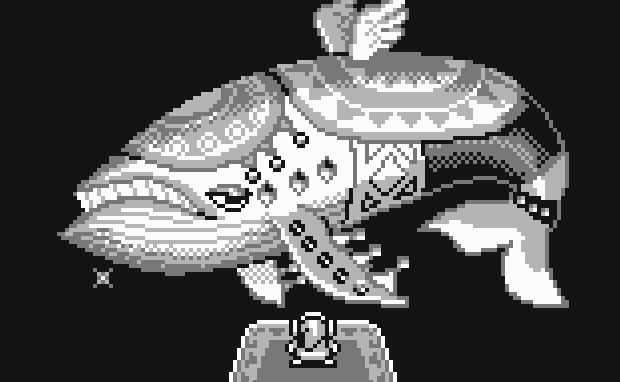
SOMEDAY, THOU MAY RECALL THIS ISLAND…. THAT MEMORY MUST BE THE REAL DREAM WORLD…. COME, LINK…. LET US AWAKEN…TOGETHER!! — The Wind Fish
